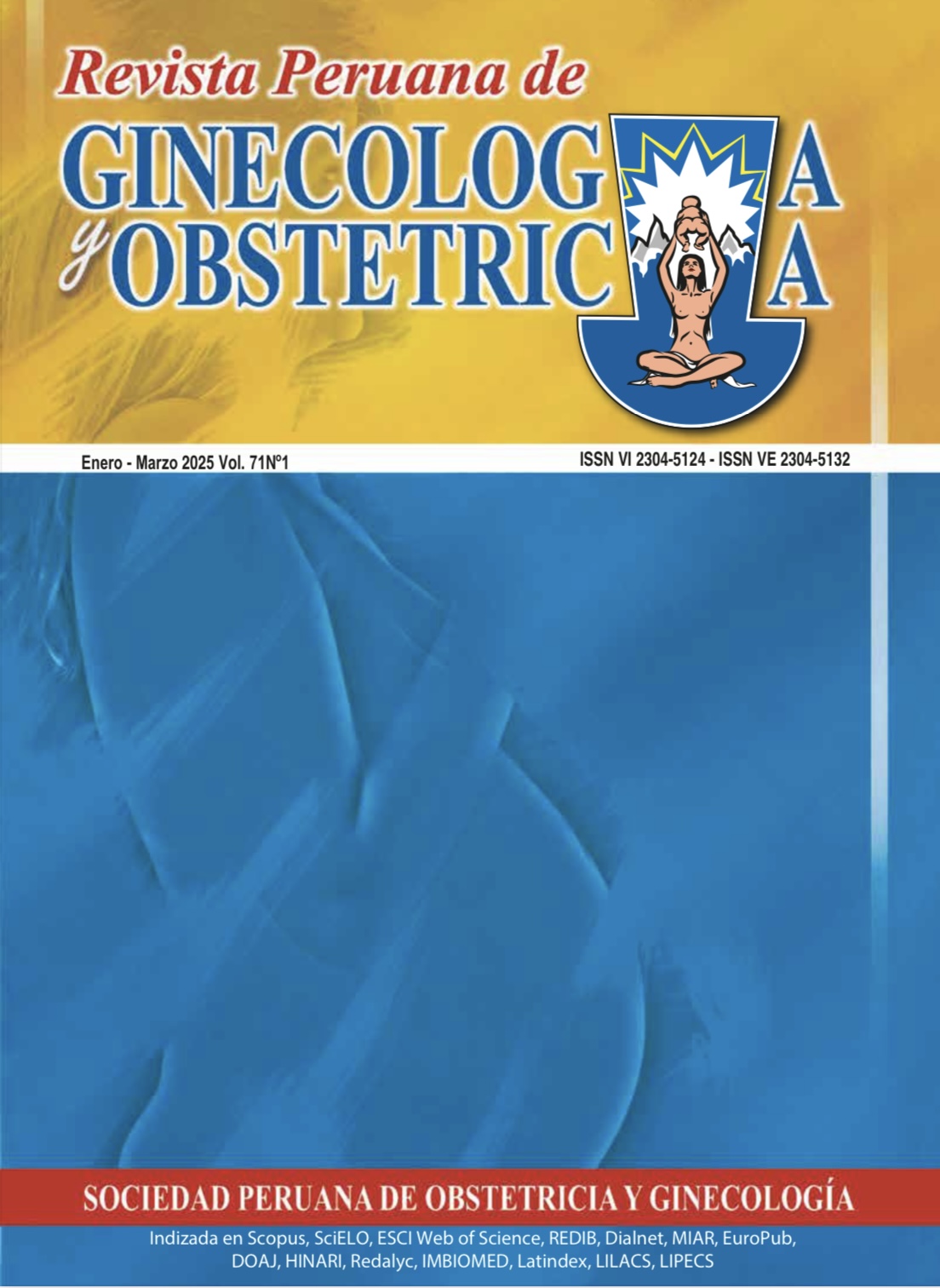Impact of obesity on women's health
DOI:
https://doi.org/10.31403/rpgo.v71i2742Keywords:
Obesity, Menopause, Cancer, Pregnancy complications, InfertilityAbstract
Throughout history, obesity has been perceived in different ways, sometimes as
a symbol of health and prosperity, and sometimes as a disease. Nowadays, there
is consensus in considering it as a chronic disease characterized by excessive fat
accumulation and linked to cardiovascular diseases, diabetes and pregnancy
complications. It is most commonly diagnosed by means of the Body Mass Index
(BMI). BMI often does not accurately reflect the problem. For this reason, other
methods such as Bioelectrical Impedance Analysis (BIA) and Dual Energy X-ray
Absorptiometry (DXA) have been proposed. Anthropometric parameters such as
skinfold thickness and mid-arm circumference are also used. Obesity is a global public
health problem whose prevalence has been increasing in recent decades. In Peru, it
is estimated that two-thirds of women of reproductive age have a BMI ≥ 25. There
are genetic and environmental factors involved in the development of obesity. The
metabolic changes associated with obesity are reviewed, including hyperinsulinemia
and hyperandrogenism, increased leptin and other pro-inflammatory adipokines,
and decreased adiponectin. Obese women have a higher risk of developing insulin
resistance, type 2 diabetes mellitus, dyslipidemia, coronary heart disease and high
blood pressure. The prevalence of menstrual irregularities due to anovulation
and infertility increases, with a lower rate of live births in in vitro fertilization (IVF)
treatments, and an increase in the abortion rate. Postmenopausal women tend to
gain weight, due to hormonal changes and less physical activity, with a preferential
increase in visceral fat. In obese women, the risk of breast, endometrial and
ovarian cancer increases. Obese pregnant women have a higher risk of developing
gestational diabetes and preeclampsia, fetal macrosomia and congenital anomalies.
It is important to prevent obesity with early education programs regarding the
short- and long-term medical consequences of obesity, and the promotion of
healthy lifestyles. Treatment includes diet and exercise, and medical and surgical
management options.
Downloads
Downloads
Published
How to Cite
Issue
Section
License

This work is licensed under a Creative Commons Attribution 4.0 International License.
Esta revista provee acceso libre inmediato a su contenido bajo el principio de que hacer disponible gratuitamente la investigación al publico, lo cual fomenta un mayor intercambio de conocimiento global.















